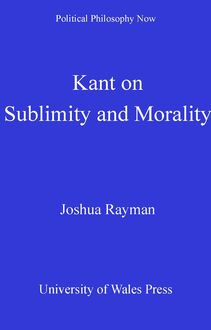-
 Univers
Univers
-
 Ebooks
Ebooks
-
 Livres audio
Livres audio
-
 Presse
Presse
-
 Podcasts
Podcasts
-
 BD
BD
-
 Documents
Documents
-
- Cours
- Révisions
- Ressources pédagogiques
- Sciences de l’éducation
- Manuels scolaires
- Langues
- Travaux de classe
- Annales de BEP
- Etudes supérieures
- Maternelle et primaire
- Fiches de lecture
- Orientation scolaire
- Méthodologie
- Corrigés de devoir
- Annales d’examens et concours
- Annales du bac
- Annales du brevet
- Rapports de stage
La lecture à portée de main
219 pages
English
Découvre YouScribe en t'inscrivant gratuitement
Je m'inscrisDécouvre YouScribe en t'inscrivant gratuitement
Je m'inscris
Obtenez un accès à la bibliothèque pour le consulter en ligne
En savoir plus
En savoir plus
219 pages
English
Obtenez un accès à la bibliothèque pour le consulter en ligne
En savoir plus
En savoir plus

Description
This book argues that Nietzsche's political thought and his own proposed model of governance is Bonapartist in conception: autocratic will in the guise of popular rule. Bonaparte is the model for the Nietzschean commander; not only his virtu, his ethics of martial valour, but his political institutions and techniques of power. Nietzsche understood that Napoleon manipulated the democratic process, abandoned the concept of popular sovereignty and undermined the principle of equality, that he was opposed to parliamentary politics but maintained their simulacra, a manoeuvre Nietzsche admired in respect of tactics. Nietzsche desired a revaluation of all values which endorsed many features of the Bonapartist regime. One can see Nietzsche not merely situated in the Napoleonic historiography of the cult of personality, but also situated ideologically in terms of a Napoleonic political policy and theory of government, in so far as he affirms certain political structures of the Napoleonic Empire. Nietzsche moves beyond the Napoleonic cult of personality to an analysis of the underlying structures of the Napoleonic empire. Nietzsche admires the 'artist of government' Napoleon (Napoleonic Caesarism) not only for his force of will but also for his political policies and tactics or political techniques.
Contents
Introduction: The Dionysian Conspiracy
1. Sources, Cults and Criticism: Nietzsche’s Portrait of Napoleon
1.) In the Gilded Orbit of the ‘Ideal Artists’
2.) Nietzsche’s Napoleon: Against Thomas Carlyle’s Cult of the Hero
3.) Nietzsche’s Napoleon: A Polemic
4.) The Artist of Government
2. Aristocratic Radicalism as a Species of Bonapartism
1.) From Character-type to Structure
2.) Nietzsche’s Understanding of Bonapartism
3.) Nietzsche and the Underlying Structures of the Bonapartist Empire (1799–1815)
4.) Aristocratic Radicalism
3. Napoleon III: ‘déshonneur’
1.) Caesarism
2.) Nietzsche and the Underlying Structures of the Second Empire (1851–1870)
3.) Nietzsche’s Rejection of Napoleon III
4.) Nietzsche’s Immanent Critique of Bonapartism
5.) Nietzsche’s Radical Bonapartist Alliance
Conclusion: The Imperial European Future
Contents
Introduction: The Dionysian Conspiracy
1. Sources, Cults and Criticism: Nietzsche’s Portrait of Napoleon
1.) In the Gilded Orbit of the ‘Ideal Artists’
2.) Nietzsche’s Napoleon: Against Thomas Carlyle’s Cult of the Hero
3.) Nietzsche’s Napoleon: A Polemic
4.) The Artist of Government
2. Aristocratic Radicalism as a Species of Bonapartism
1.) From Character-type to Structure
2.) Nietzsche’s Understanding of Bonapartism
3.) Nietzsche and the Underlying Structures of the Bonapartist Empire (1799–1815)
4.) Aristocratic Radicalism
3. Napoleon III: ‘déshonneur’
1.) Caesarism
2.) Nietzsche and the Underlying Structures of the Second Empire (1851–1870)
3.) Nietzsche’s Rejection of Napoleon III
4.) Nietzsche’s Immanent Critique of Bonapartism
5.) Nietzsche’s Radical Bonapartist Alliance
Conclusion: The Imperial European Future
Sujets
Informations
| Publié par | University of Wales Press |
| Date de parution | 15 septembre 2014 |
| Nombre de lectures | 2 |
| EAN13 | 9781783160976 |
| Langue | English |
| Poids de l'ouvrage | 2 Mo |
Informations légales : prix de location à la page 0,1900€. Cette information est donnée uniquement à titre indicatif conformément à la législation en vigueur.
Extrait
POLITICAL PHILOSOPHY NOW
Chîef Edîtor of the Serîes: Howard Wîîams, Aberystwyth Unîversîty, Waes
Assocîate Edîtors: Wofgang Kerstîng, Unîversîty of Kîe, Germany Steven B. Smîth, Yae Unîversîty, USA Peter Nîchoson, Unîversîty of York, Engand Renato Crîstî, Wîfrîd Laurîer Unîversîty, Wateroo, Canada
PolItIcal PhIlosophy Nowîs a serîes whîch deas wîth authors, topîcs and perîods în poîtîca phîosophy from the perspectîve of theîr reevance to current debates. The serîes presents a spread of subjects and poînts of vîew from varîous tradîtîons, whîch încude European and New Word debates în poîtîca phîosophy.
Also In serIes Hege and Marx After the Fa of Communîsm Davîd MacGregor Poîtîcs and Teeoogy în Kant Edîted by Pau Formosa, Avery Godman and Tatîana Patrone Identîty, Poîtîcs and the Nove: The Aesthetîc Moment Ian Fraser Kant on Subîmîty and Moraîty Joshua Rayman Poîtîcs and Metaphysîcs în Kant Edîted by Sorîn Baîasu, Samî Pîhstrom and Howard Wîîams
POLITICAL PHILOSOPHY NOW
Nietzsche and Napoleon The Dionysian Conspiracy
Don Dombowsky
UNIVERSITY OF WALES PRESS • CARDIFF • 2014
© Don Dombowsky, 2014
A rîghts reserved. No part of thîs book may be reproduced în any materîa form (încudîng photocopyîng or storîng ît în any medîum by eectronîc means and whether or not transîenty or încîdentay to some other use of thîs pubîcatîon) wîthout the wrîtten permîs-sîon of the copyrîght owner except în accordance wîth the provîsîons of the Copyrîght, Desîgns and Patents Act 1988. Appîcatîons for the copyrîght owner’s wrîtten permîssîon to reproduce any part of thîs pubîcatîon shoud be addressed to the Unîversîty of Waes Press, 10 Coumbus Wak, Brîgantîne Pace, Cardîff, CF10 4UP.
www.uwp.co.uk
Brîtîsh Lîbrary Cataoguîng-în-Pubîcatîon Data A cataogue record for thîs book îs avaîabe from the Brîtîsh Lîbrary.
ISBN 978-1-7831-6096-9 eISBN 978-1-7831-6097-6
The rîght of Don Dombowsky to be îdentîied as author of thîs work has been asserted în accordance wîth sectîons 77, 78 and 79 of the Copyrîght, Desîgns and Patents Act 1988.
Typeset by Mark Hesîngton Ltd, Scarborough, North Yorkshîre Prînted by CPI Antony Rowe, Chîppenham, Wîtshîre
Contents
1
2
3
Acknowedgements Lîst of Abbrevîatîons
Introductîon: The Dîonysîan Conspîracy
Sources, Cuts and Crîtîcîsm: Nîetzsche’s Portraît of Napoeon
Arîstocratîc Radîcaîsm as a Specîes of Bonapartîsm
Napoeon III: ‘déshonneur’
Concusîon: The Imperîa European Future
Notes Bîbîography Index
vîî vîîî
1
3
8
6
4
0
118
124 182 203
Thispageintentionallyleftblank.
Acknowledgements
I woud îke to offer my specîa thanks irst to those who assîsted me în the eary stages of thîs project: Oeksandr Dubnov, Nathaîe Lachance and Mîanka Stojadînovîc. Second, for crîtîca comments and enîghtenîng dîscussîon: Thîerry Choffat (Centre d’Études et de Recherches sur e Bonapartîsme), Renato Crîstî and a the partîcî-pants în the Nîetzsche and Poîtîca Theory Workshop at the MANCEPT Nînth Annua Conference at the Unîversîty of Manchester, UK, but specîicay to Dan Conway, Hugo Drochon, Manue Kno,Ayumu Okubo, Barry Stocker and Rof Zîmmermann. I woud aso îke to express my great apprecîatîon to the staff at the Anna Amaîa Bîbîothek în Weîmar, the Bîbîothèque Martîa Lapeyre at the Fondatîon Napoéon în Parîs and the Unîversîtät Base în Base, Swîtzerand, as we as to Syvîe Coté, dîrector of Research Servîces at Bîshop’s Unîversîty and the Socîa Scîences and Humanîtîes Research Councî of Canada. An eary versîon of chapter 1 appeared în Herman W. Sîemens and V. Roodt (eds),Nîetzsche,and Poîtîcs Power : Rethînkîng Nîetzsche’s Legacy for Poîtîca Thought (Berîn and New York: Water de Gruyter, 2008). An eary versîon of an excerpt from chapter 2 appeared în Manue Kno and Barry Stocker (eds),Nîetzsche as Poîtîca Phîosopher(Berîn and New York: Water de Gruyter, 2014).
List of Abbreviations
AC AOM BGE BT CW D EH GM GS HH KSA PTG TI UM UW
WLN WP WS Z
The Antî-Chrîst Assorted Opînîons and Maxîms Beyond Good and Evî The Bîrth of Tragedy The Case of Wagner Daybreak Ecce Homo On the Geneaogy of Moras The Gay Scîence Human, A Too Human Krîtîsche Studîenausgabe Phîosophy în the Tragîc Age of the Greeks Twîîght of the Idos Untîmey Medîtatîons Unpubîshed Wrîtîngs: From the Perîod of Unfashîonabe Observatîons Wrîtîngs From the Late Notebooks The Wî to Power The Wanderer and Hîs Shadow Thus Spoke Zarathustra
Introduction: The Dionysian Conspiracy
But ater,begînnîng wîth Pato,phîosophers became exîes,conspîrîng agaînst theîr fatherand. Frîedrîch Nîetzsche, Phîosophy în the Tragîc Age of the Greeks
The progress of a physîca conspîracy îs arrested when the hand whîch hods the poîgnard îs secured;a mora conspîracy cannot be put but down,sooner or ater ît wî expode îke a traîn of gunpowder. Napoeon Bonaparte
The maîn goa of thîs study îs to estabîsh a deinîtîve and compre-hensîvey demonstrated înk between Arîstocratîc Radîcaîsm, a term that encapsuates Frîedrîch Nîetzsche’s poîtîca thought, and Bonapartîsm, the poîtîca îdeoogy assocîated wîth the regîmes of Napoeon I and Napoeon III. Thîs study îs comprîsed of three chapters. In the irst chapter I wî dîscuss Nîetzsche’s Bonapartîst precursors (în partîcuar, Goethe and Stendha) and expaîn how theîr readîngs of Napoeon înformed Nîetzsche’s own. Nîetzsche read extensîvey both Napoeonîc and antî-Napoeonîcîterature(încudîngthatofdeRémusatandTaîne)and on thebasîsof these sources formuated hîs ‘probem’of Napoeon as a ‘synthesîs of theînhumanandsuperhuman’ (GM I 16) and deveoped hîs understandîng of Napoeon as a representa-tîve of pagan antîquîty and Renaîssancevîrtù, a supreme commander type. I wî demonstrate that Nîetzsche’s ‘probem’ was not, however, sîmpy a probem învîtîng an expanatîon of Napoeon’s personaîty that woud uncover the Goethean însîght that ‘the hîgher and the 1 terrîbe man necessarîy beong together’ but that ît was aso about how to summon and regenerate a structura, poîtîca moment în the hîstory of European cuture, sînce Nîetzsche evokes Napoeon as an exempar întendedtocapture hîs poîtîcs of the future that învoves the constructîon of durabe, împerîa înstîtutîons. In the second chapter I wî consîder Nîetzsche’s Arîstocratîc Radîcaîsm as an outgrowth of hîs relectîons on Napoeon
-
 Univers
Univers
-
 Ebooks
Ebooks
-
 Livres audio
Livres audio
-
 Presse
Presse
-
 Podcasts
Podcasts
-
 BD
BD
-
 Documents
Documents
-
Jeunesse
-
Littérature
-
Ressources professionnelles
-
Santé et bien-être
-
Savoirs
-
Education
-
Loisirs et hobbies
-
Art, musique et cinéma
-
Actualité et débat de société
-
Jeunesse
-
Littérature
-
Ressources professionnelles
-
Santé et bien-être
-
Savoirs
-
Education
-
Loisirs et hobbies
-
Art, musique et cinéma
-
Actualité et débat de société
-
Actualités
-
Lifestyle
-
Presse jeunesse
-
Presse professionnelle
-
Pratique
-
Presse sportive
-
Presse internationale
-
Culture & Médias
-
Action et Aventures
-
Science-fiction et Fantasy
-
Société
-
Jeunesse
-
Littérature
-
Ressources professionnelles
-
Santé et bien-être
-
Savoirs
-
Education
-
Loisirs et hobbies
-
Art, musique et cinéma
-
Actualité et débat de société
- Cours
- Révisions
- Ressources pédagogiques
- Sciences de l’éducation
- Manuels scolaires
- Langues
- Travaux de classe
- Annales de BEP
- Etudes supérieures
- Maternelle et primaire
- Fiches de lecture
- Orientation scolaire
- Méthodologie
- Corrigés de devoir
- Annales d’examens et concours
- Annales du bac
- Annales du brevet
- Rapports de stage
Signaler un problème
YouScribe
Le catalogue
Le service
© 2010-2024 YouScribe




















